Protests in Egypt, violence and criminality in Venezuela, nuclear contamination in Japan, sexual assaults in India and Brazil, conflicts in many Muslim countries, war in Syria, Iraq and so on.
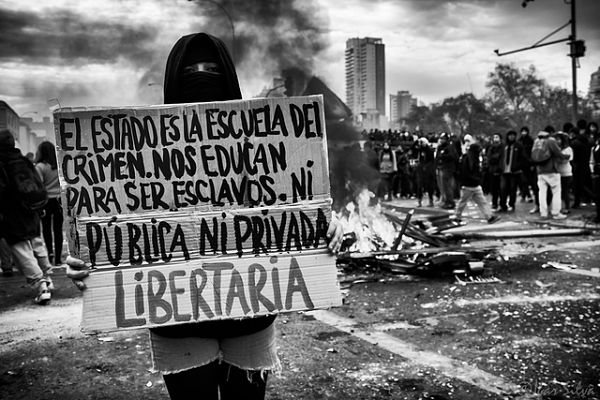
And then kidnapping, mugging, snatching, food poisoning and who knows what else.
Some days, when I read the media and learn about the warnings issued by many foreign Governments, it looks like the world is full of dangerous places, and I feel as if the unspoken message was ‘better avoid travel, unless it’s in your backyard’.
What defines ‘dangerous places’?
A couple of years ago, a few people wrote me asking if I was not afraid traveling to Greece because of the protests stemming from the financial crisis. Others found disputable my solo travel in Morocco and South Africa.
Questions about travel safety in countries I never thought at as dangerous places or a possible source of worries have become so frequent that I started wondering if, after all, the relation between travel and danger is only (or mostly) a matter of perception.
With a very few exceptions, I believe that yes… Danger is a subjective feeling.
I’ve been traveling alone for years now, and if I think at the two most annoying things for a woman traveling solo the ones that instantly come up to my mind are unwelcome attentions from men, and the high cost for a hotel room, since I’ve no-one to share with.
I do not consider myself particularly brave, but I very rarely turned down a destination because of safety reasons. In the ‘travel and danger’ equation, I think about the journey, and with a very few exceptions I never discarded a destination.
Certainly I stay away from the countries where there’s a war under way (the only real dangerous places in the way I see things), and in countries with a high criminality rate, I take my precautions. However, it never occurred my mind that I should not visit Venezuela or South Africa alone.
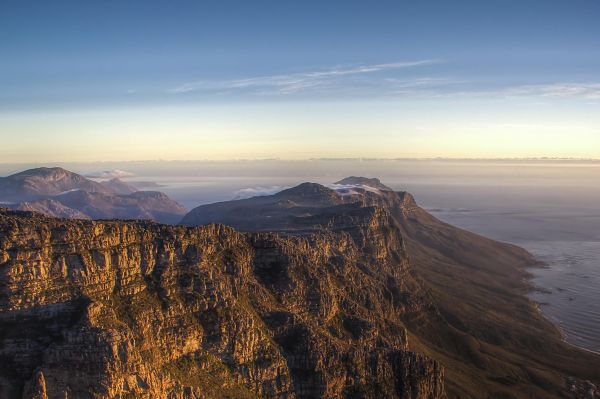
What drives our perception of dangerous places? I reckon that 3 relevant factors are:
a) the media, sometimes (often?) putting too much emphasis on the bad news, not balancing them enough with positive data, at times not even reporting about the facts in a broader (and more objective) perspective.
b) the stronger attention every one of us puts in news on criminality and dangers in foreign countries, rarely wondering how often these same facts happen in our own country. This is why if for example a tourist gets shot in Asia, the country suddenly becomes ‘dangerous’ and nobody seems to raise the question of how many people get shot in the USA or in Europe every year. When I think of it, it looks like ‘dangerous places’ are mostly the ones we know very little about, excepts the bad news.
c) every person has his/her own comfort zone, depending on a countless number of factors. Most of the times, fear is irrational and has nothing to do with a country, the political and social situation. The perception of danger is mostly related to how we irrationally connect facts and consequences, as well as the lack of knowledge.
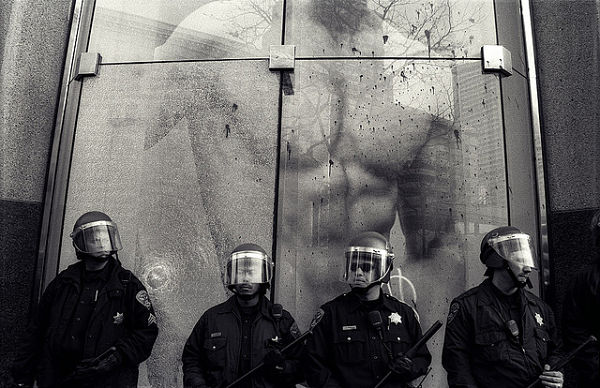
How can one manage the perception of ‘dangerous places’ and overcome the subsequent fears, often preventing from visiting a country?
Curiosity is the best trigger to overcome the perception of danger.
I wanted to travel (alone) to Venezuela, and a few years later I dreamed of visiting South Africa. I was aware that both are – to a certain extent – dangerous places, so I tried to gather information from different sources. I didn’t want to give up, and I focused on finding a way to travel as safely as possible.
When I went to Venezuela, I totally skipped Caracas, one of the most dangerous cities in the world at that time. In countries like South Africa and Morocco, it’s paramount taking a taxi after dark and always good asking the locals for advice on safety and areas to avoid or to be very careful about. Keeping a low profile in poor countries is always recommended, and avoiding to show off expensive stuff is a good way not to draw the attention as well as a matter of respect.
Apart from the countries sadly experiencing ongoing wars, preparing (first of all, psychologically) for dangers in potentially critical countries is mostly a matter of good sense. And of being open to new experiences, different contexts.
How do you define ‘dangerous places’? And how much do possible dangers influence your decisions to visit or not a country?
More Travel Musings: Getting Older Changed My Travel Perspective

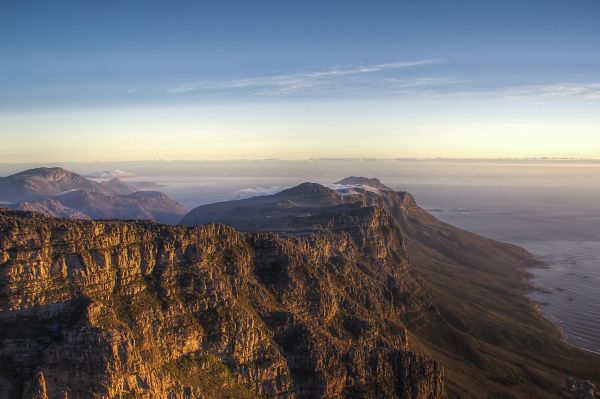
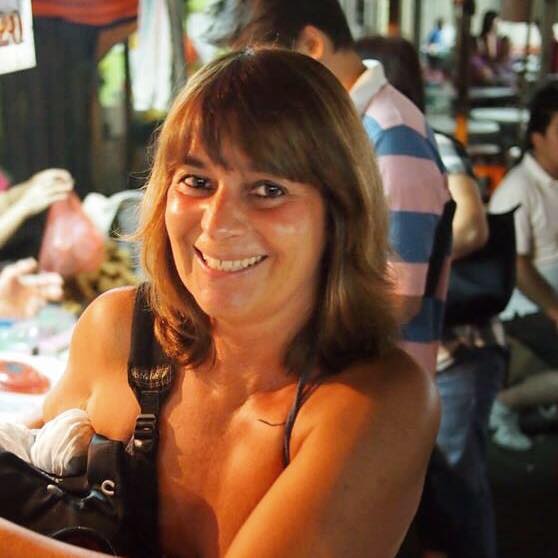

The day I announced that I was going to Brazil alone, all my friends said I was crazy, even the well travelled ones. Now, this was well before the Brazil that’s portrayed today (shiny World Cup/Olympics, etc). And I think my departure there was only a few years after that film, City of God (the violent, bloody one about the favelas & cocaine). If I had listened to them or the media I would have missed out on my most memorable trips. I always ignore the media and visit travel forums to read what real people are saying, that’s how you truly know, then I mix that with listening to my own gut. If the place feels wrong, I beetle it outta there. That’s the beauty of buying a one-way ticket. 🙂
Thanks for this article. I am so tired of reading and seeing articles posted about safety and travel and is x country safe and blah blah, so I am happy that I stumbled across this one.
Have a good head on your shoulders and there are not a lot of places that are truly dangerous. If you dont feel safe before hand, don’t go. If you dont feel safe during, leave. Thanks for the post!
I was so glad to read your comment, Bradley. As you perfectly say, the only relevant thing is having ‘a good head on your shoulders’. All the useless conversations on ‘dangerous places’ are like a plague, leading to bad – and wrong – perceptions, and prejudice.
Great post. I think one of the biggest things you can do it not listen to the media. A couple years ago I spent some time in Acapulco and Mazatlan, Mexico — both were coined dangerous at the time — not the case IMO. I do a lot of local research before I travel and try to hook up with some folks actually living there.
If I properly understand, it looks like you share my point that after all ‘danger’ is most of the times a matter of ‘subjective’ judgement or perception. Glad that you don’t listen to the media negative ‘propaganda’ and decided to visit Mexico despite the negative media coverage.
A good article Simon, some straight talking from tourism DMO’s would be a good starting point and clearer communication about which areas of any city to avoid.
I wrote this piece earlier this year following a number of high-profile attacks on tourists in Central America “Gun crime and tourism, reality vs perceptions”
http://marytebje.com/2013/02/28/gun-crime-and-tourism-reality-vs-perceptions/
Thanks for stopping by and sharing your thoughts, Mary. I truly enjoyed your piece on ‘Gun crime and tourism, reality vs perception’ and the read strengthened my opinion on guns: I am simply against any kind of weapon and wish (in a fully un-realistic fashion, I know) there will come one day when they will all disappear.
In my limited experience I noticed, however, that there are also cultural differences with respect to guns. For instance, in Yemen almost every man holds a gun, but it is most like a ‘status, manhood symbol’ rather than a threat. On the other hand, in the USA (like certainly in other countries), guns are kept as a defence (where the boundary with ‘offence’ is a rather subjective matter) option.
While I try as much as I can to refrain from any kind of judgment, I can’t help wondering why are we thinking so much about threats in foreign countries and so little about our own backyard?
I am Brazilian and I can assure that it is a wonderful country that is worth knowing. As everywhere in the world there are places in big cities it is preferable to avoid, but I agree when you suggest to ask the locals the best places and times when it is safe to know them. Come to Brazil. I recommend the beaches of the Northeast and the State of Santa Catarina, whose capital is Florianópolis. But there are plenty of options for everyone, including for those who like mountain climate and beautiful natural landscapes in several Brazilian states. In some places it is recommended prudence to prevent theft, not to go alone in deserted places, especially if it is not accompanied by a tour guide or at inappropriate times. Avoid displaying expensive items, especially in places with large crowds in cities.
I fully agree with you, Sérgio, I fell in love with Brazil, where I had a wonderful time. People were awesome, warm and welcoming, and I loved both the cities (Rio, San Salvador) and the amazing nature (especially Lençois and Fernando de Noronha).
As you say, it’s a matter of being cautious and avoiding any show-off of expensive items (which, by the way, is not even appropriate nor respectful).
This is very interesting. I very much want to go to India, but as I’m a female, I’m totally not very much into the idea. Why? Because of the fact that (if I believe everything portayed in the media) every female tourist will probably get raped at some point. I know this isn’t true, but still the feeling I get from the media is very unsettling.
Now is there any blame on their part? I’m not sure. The cases of women getting (violently) raped are obviously big in the news, but to be honest I think about 99% of the rapecases don’t even get reported. So the problem in the country is bigger than reported, I would say. On the other hand, they don’t really put it into perspective. I’ve YET to read a good piece on what exactly the issue is in India. Why is there so much rape?
I guess in the end really the only way to find out if anything is safe, is to travel there yourself. I’ve heard plenty of women talk about travelling to India alone and having nothing happen. I think it’s just the idea of being somewhere alone and nobody being able to help you is scary (I mean how often does that situation occur in your home country?). I agree with you that if you’re afraid of getting shot, you’re probably best of not even living in the USA 😉
You raise a very good point! When I think at the gang rapes in India, I’m of course worried. But then, I can’t help wondering at how many rapes occur in Western – the ‘so called’ developed – countries. You might be right that not all the cases are reported. But is this something specific for India? I honestly don’t think so.
As you write, it’s being in an unknown environment, without our apparent certainties, that makes us feel uncomfortable. Truth is, however, that if we stop thinking of it, there are not many more guarantees of safety where we live than on foreign countries. It’s just that when we’re at home, we don’t think about it.
I’m sorry to jump into this exchange but I lived in India for several months before these high profile rapes but when I went, I had read reports of foreign women being assaulted. Now saying that sounds dire, but the cases I read were 2 years prior to when I went and it was only two cases that I found. India’s problem is a social problem, one where men and women do not interact socially nor are encouraged to. Virginity is expected to quite an old age (sometimes up to age 27) so in my estimation sexual tensions are alway on the high side. Add to the ineffective rape laws (though slowly changing) and poor enforcement by police, it’s a domino situation.
But here’s my counter, if you read rape statistics many developed countries don’t fare that well either, for instance, Sweden has the highest incidences of rape in Europe. SWEDEN! The media crafts stories of “stranger rape” but statistically women are generally assaulted by someone they know (acquaintance, friend, ex-boyfriend, teacher, coach). I volunteered at a rape shelter and saw this over and over again. Stranger rape yields the most ratings for media and the deepest fears in women. But the percentage of them in reality is lower than we’re led to believe.
But back to India, is it safe? India operates within a set of rules and if you move within that world you’ll be okay — you’ll probably have a great time. I saw time and again, foreign women showing up and wearing clothes that drew unwanted attention and they wondered why, not just attention from men either, but other women. It’s sadly a place where you have to tuck some of your feminism inside for a while, but the culture and history is worth it. Hope my 2 cents helped. 🙂
I feel a bit like this about Egypt – when I was there it was to visit a friend in Alexandria. I was not so very long after the revolution and there were protests in the news. However, we didn’t have any problems at all. I like to take the local advice, if you know someone in a country and then when you are there, take it again on which individual spots are safe and which to avoid. One location might be a big no no while the rest of the country is safe with reasonable precautions
Local advice is always a huge plus, and all the most in troubled countries. Glad to read that you’ve been to Egypt despite the protests, Heather. It’s a wonderful country and, as you write, the issues were limited to specific areas.
Great post Simon.
Nothing makes me madder when people base their opinions on a place around media reports. Media, most notably news, in my humble opinion, is just a negative waste of time. Generally what is reported is of no relevance to you or your travels, so just go out there, explore where you want to – and then return and help change people’s opinions of it.
Thank you, Clare. Sometimes, media drive me mad. When I think that I’d been waiting for years before coming and visit South Africa, only because of a wrong perception and yes… let’s confess it… prejudice, I feel stupid. I fell in love with South Africa (where I went back and, hopefully, one again soon) and in many other countries depicted as ‘highly dangerous’. And you know what? I have no regrets, and only feel sorry for the ones who still didn’t try to see beyond the first impression.